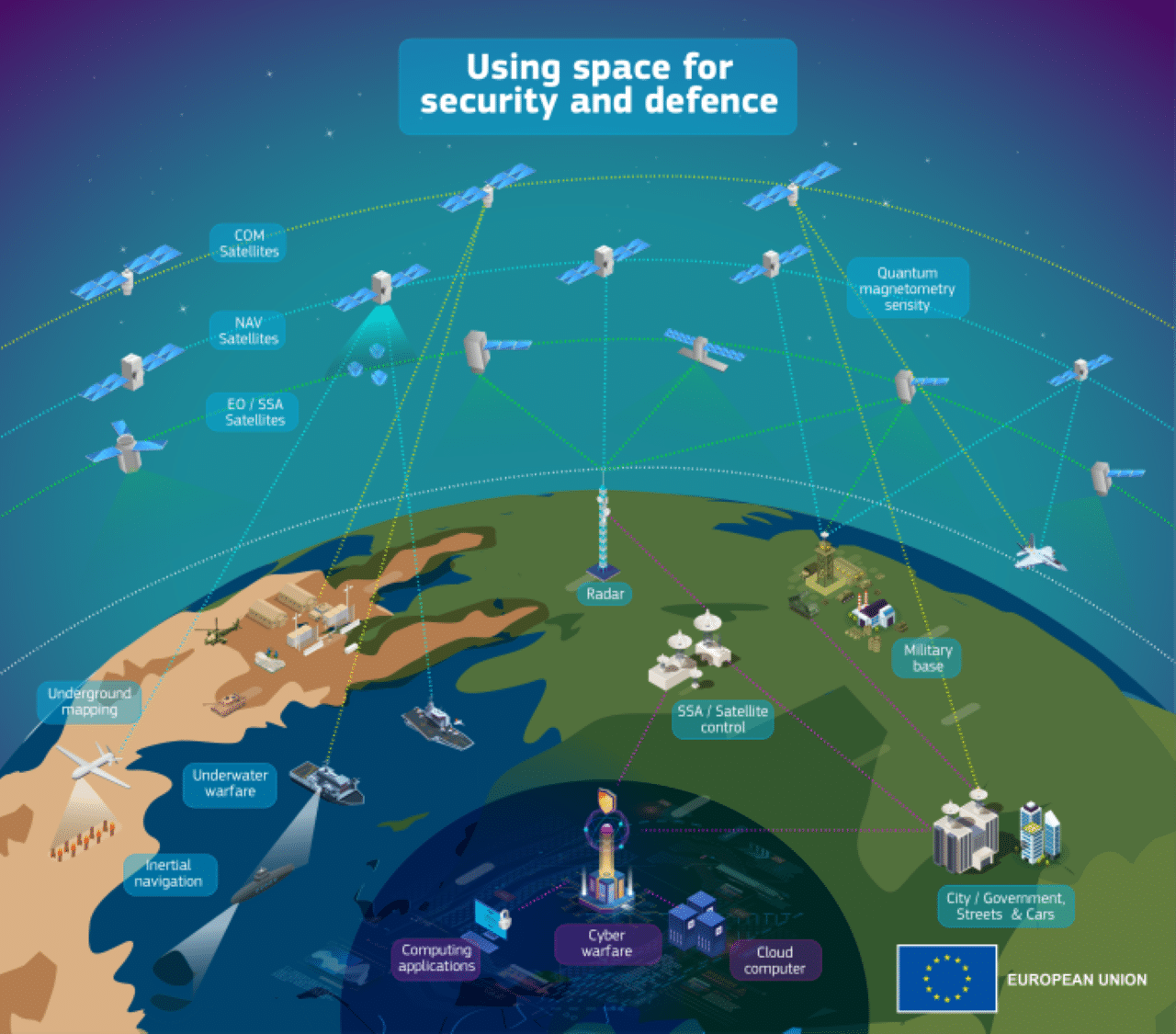August 13, 2024
In recent years, space has solidified its position as a critical strategic domain, gaining unprecedented political and military importance. Against this backdrop, Sweden’s evolving space strategy presents a unique opportunity to enhance its influence within both NATO and the EU, and to foster closer cooperation between these two pivotal institutions. In other words, there is a real possibility that the most significant long term advantage of Sweden’s NATO membership might not be its airforce or naval capabilities, despite their value, but it is the advanced space industry.
The crux of Sweden’s space strategy is a replica of its triple helix model for defense innovation whereby Stockholm seeks to both utilize and enhance its domestic capabilities by contributing to and collaborating with is EU/NATO allies and its liberal democratic partners in Asia, including South Korea with whom it recently signed a collaborative agreement to launch satellites jointly. To this effect, the Esrange Space Center is poised to become a premier launch site for military satellites for both Sweden as well as its NATO and EU allies. This initiative is particularly significant given the current lack of orbital satellite launch capabilities in continental Europe. By offering Esrange as a launch hub, Sweden aims to fill this critical gap, enhancing the operational readiness of European defense networks and making critical contributions to collective security efforts with the Euro-Atlantic zone.
The proposed use of Esrange, therefore, represents more than a mere technological upgrade; it is a strategic maneuver that could redefine Sweden’s role within both organizations. The integration of Esrange into NATO’s space strategy would facilitate better coordination of satellite communications, navigation, and intelligence, surveillance, and reconnaissance (ISR) capabilities across the alliance. This integration is crucial as NATO continues to develop its space policy, having recognized space as an operational domain and established a dedicated Space Centre of Excellence in Germany. Enhanced satellite capabilities would improve the alliance’s situational awareness, command and control structures, and overall resilience in the face of potential adversarial actions in space.
Sweden’s leadership in space also positions it as a crucial bridge between NATO and the EU, which have historically maintained separate space initiatives. The EU’s extensive space infrastructure, including the Galileo navigation system and the Copernicus Earth observation program, complements NATO’s growing focus on space security. However, these parallel efforts often suffer from a lack of cohesion, partly due to bureaucratic hurdles and differing strategic priorities. Sweden’s membership in both entities in conjuncture with its diplomatic acumen can play a pivotal role in harmonizing these efforts, fostering a unified approach to space security. By advocating for joint projects and shared investments, Sweden can help align the technological and strategic goals of both organizations, ensuring more efficient use of resources and greater collective security.
Additionally, Sweden can facilitate better communication and policy alignment between NATO and the EU. This involves advocating for regular high-level dialogues and collaborative platforms where policymakers and defense strategists from both entities can converge. By doing so, Sweden can help break down bureaucratic barriers and streamline the coordination of space-related efforts, thereby enhancing the overall effectiveness of European and transatlantic security strategies. To this end, Sweden’s diplomatic efforts should also focus on clarifying and standardizing space security protocols within NATO. The ambiguity surrounding the applicability of Article 5 in space, for instance, poses a significant challenge to collective defense planning. By spearheading discussions on defining what constitutes an attack or irresponsible behavior in space, Sweden can help establish clear standards and response strategies, thus strengthening NATO’s deterrence posture.
A range of factors—including the unpredictable impacts of climate change on the societal and economic security of nations, Russia’s assertive foreign policy, and the increasing geopolitical and technological competition between the United States and China—have collectively reshaped the contemporary strategic environment. In this new landscape, threats are both regional and global and are often intertwined, making instability a pervasive reality. Therefore, collective action and a well-defined division of labor for defense and security among like-minded countries are essential components of any defense and security strategy today. What matters most is for countries to be clear-eyed about their national capabilities and focus on areas where they have a distinct advantage, thereby amplifying the impact of their contributions.
Sweden has a unique opportunity to leverage its advanced space capabilities and diplomatic expertise to bridge the gap between NATO and the EU in the space domain. By positioning Esrange as a key launch site, advocating for joint initiatives, facilitating better communication, and leveraging its expertise in environmental monitoring and space-based climate observations, Sweden can significantly enhance cooperation between these two critical institutions. This strategic role not only elevates Sweden’s influence within NATO and the EU but also contributes to a stronger, more integrated approach to space security, ensuring collective defense and resilience in an increasingly contested domain.
Source – The Arctic Institute

